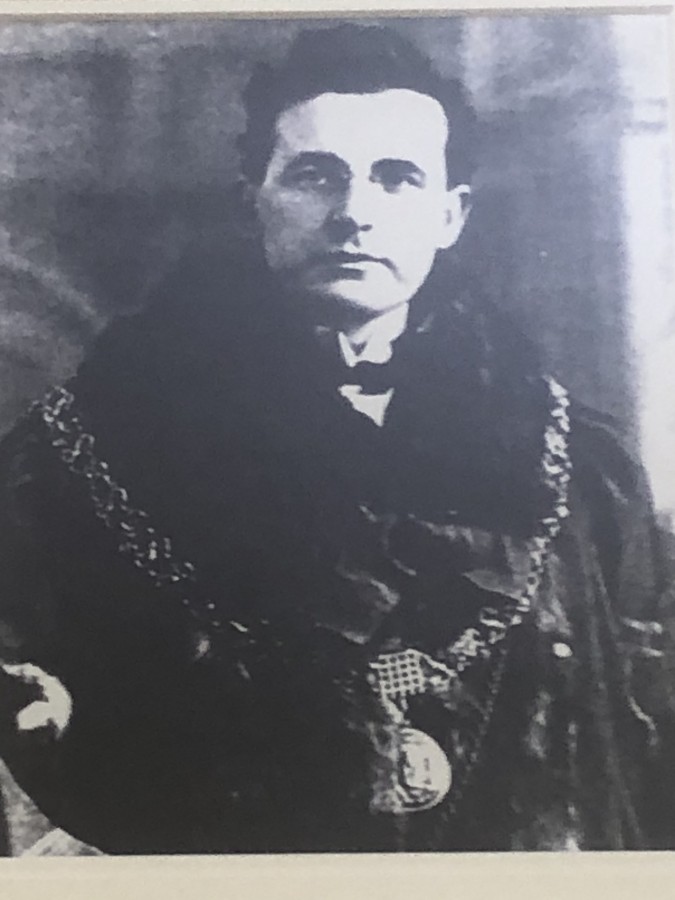
Kieran’s Our City, Our Town Article,
Cork Independent, 7 November 2019
Tales from 1919: Criticism of King and Country
Saturday 8 November 1919 coincided with unresolved grievances being discussed by the members of the Cork Branch of the Irish Federation of Discharged and Demobilised Soldiers and Sailors. Shortly after 3pm many members formed into processional order in front of their rooms on St Patrick’s Quay. To the accompaniment of the music supplied by the band attached to the Federation, they marched to City Hall, where a meeting was held. The body of the Hall and the side galleries were fully occupied. Apart from city contingents, members also arrived from Bandon and Mallow.
Mr H B Fisher, President of the Cork Branch, presided. The meeting also aimed to mark the first year passing since Armistice Day. The Cork Examiner records that in opening the proceedings the chairman explained that the meeting had been called for the purpose of drawing public attention to the manner in which ex-soldiers and sailors were being treated. He spoke on behalf of upwards of 1,900 members in his branch. They had been promised in 1914 that they would get employment post the war, but nothing was forthcoming. They had been promised adequate pensions, but none were forthcoming. He strongly urged the Westminster Government to fulfill their promises.
Mr Barry O’Leary, Chairman of the Southern District Divisional Council, said there should be no mistake about the protection of the interests of ex-service men. They were non-sectarian and non-political, and their claim was a good one in spite of the political upheaval that occurred in their country since 1914; “We went out and offered our bodies. This is all we had to offer to stop the rush of the German hordes…We went out with the unanimous consent and voice of the country, and now I ask are we disgraced; No, we held the Germans, and it was good logic that the men who paid the piper should call the tune. We have nothing to disgrace or sully Ireland’s record for chivalry…the promises made to us when we went out, that their King and country would look after them, have not been carried”.
To give an example of the way discharged and demobilised soldiers were treated, Mr O’Leary detailed that the Government gave officers who had served in the army, even those of the lowest rank, a gratuity of about £90 for the first year. They were offered £45 for the second and every subsequent year the war lasted, and the grand total sum that the men of the rank and file, who fought through it all, were to get was £29. The Cork branches as well as other nationwide branches wished to know why there was such a great disparity between the amounts granted to a second lieutenant and the regimental sergeant-major who taught him his work.
On the proposition of Mr Barry, the following resolution was carried with acclamation: “We, the discharged and demobilised sailors and soldiers of Cork City and County protest against the action of the Government and other responsible officials in keeping out of employment men who have served their country during the great war. We condemn as a breach of the promises made to us – the keeping of, in Government and War Department employment, civilians who, under no circumstances whatever would serve in the navy or army, no matter how great the need, and we call upon those responsible to now and at once have such people replaced by discharged and demobilised men. We, who have satisfied the needs of our ‘King and Country’, now call upon our ‘King and Country’ to satisfy our needs, and we wish it to be known that those responsible for satisfying such needs have ignobly failed”.
The next resolution was the motion of Mr Kirby, unanimously adopted. It was as follows: “That we, the discharged and demobilised soldiers and sailors of Cork City and County wish to place on record our dissatisfaction at the inadequacy of the war gratuity paid to us, and wo call on the Army Council to raise the amount granted to the Imperial troops so as to bring them into line with the Colonial troops”.
The Lord Mayor, William F O’Connor highlighted in his speech that when the soldiers and sailors went out in 1914, he was with them in sympathy, and now, twelve months after Armistice they still had his sympathy. He would do all in his power to have those grievances redressed; “It was a shocking state of affairs for a mighty Empire like the British Empire to see that after all their service in the war the discharged and demobilised soldiers and sailors were compelled to come to that hall an ask for the justice that was not given to them. They had entered the war as a war of justice. They had gone out, and risked their lives; they stormed the heights; they filled the gaps in the bullet swept zone, and they now had to ask the Government to give them fair play…Where would the might of England be today but for the Ministers, the Dublins, and the Connaughts. They would have a German Dictatorship ruling in England today if the Irish had not jumped into the breach”.
Caption:
1022a. Lord Mayor of Cork, Cllr William F O’Connor, 1919 (source: Cork City Council).
